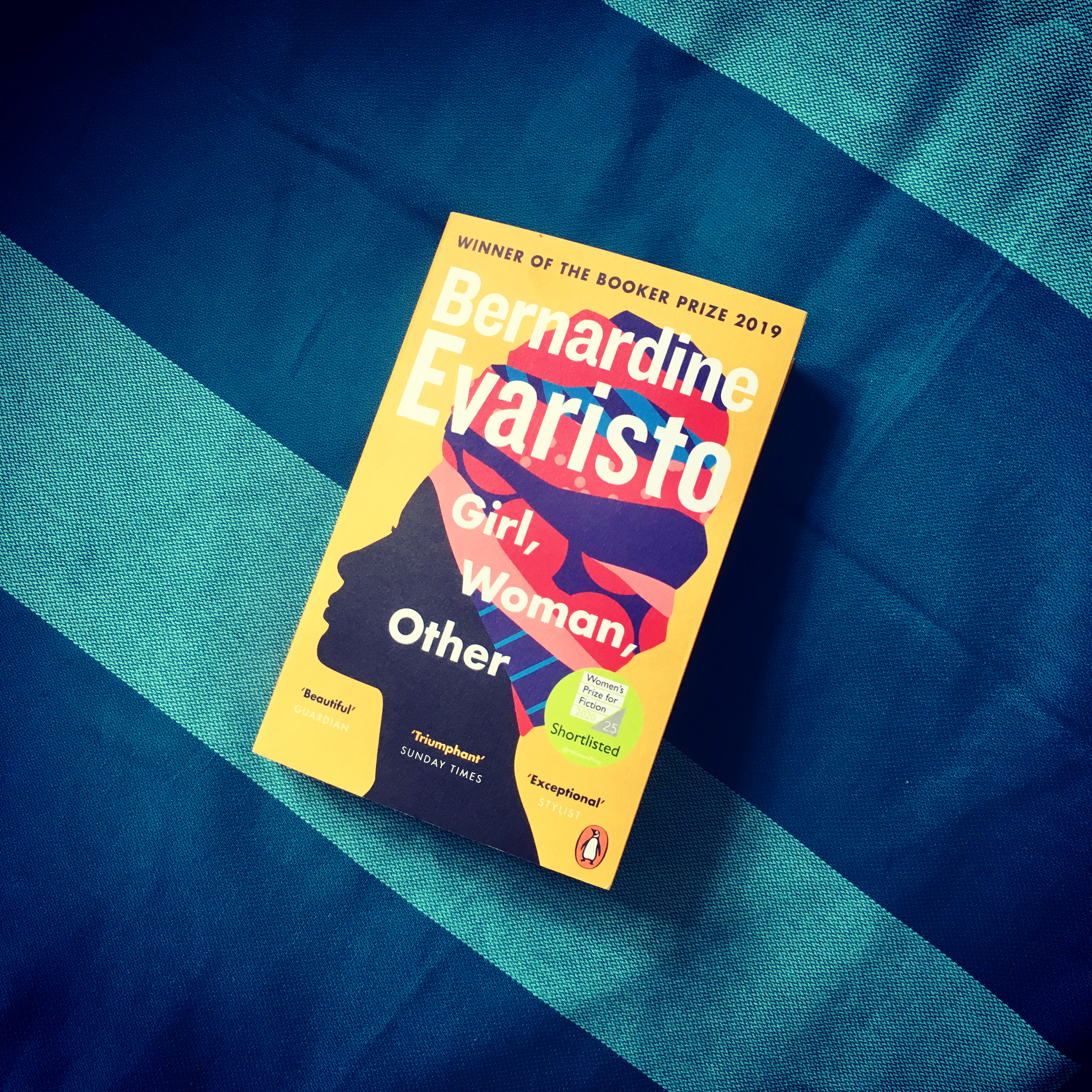📚 Dear Hive-Team 📚
📚
📚
Girl, Woman, Other is about womanhood and becoming an adult. In that process, each woman shares how she has been othered whether on account of class, race, sexuality and/or some other dimension. These stories, which are all about British Black women, show how varied their experiences and their stories are, even as they share a common bond of being Black women.
📚
In addition to absolutely loving this book, both reading it and reflecting upon it, I thoroughly enjoyed listening to Bernardine Evaristo talking about her writing. Following her interviews and newspaper articles. I can recommend this one on the guardian:
https://www.theguardian.com/books/2019/apr/27/bernardine-evaristo-girl-woman-other-interview
Also, she is teaching Creative Writing at the same university that I studdied at: Brunel University in London, UK. That gives me an additional connection to her and her experience.
In 2020 she was voted as one of the 25 most influential Brisish women.
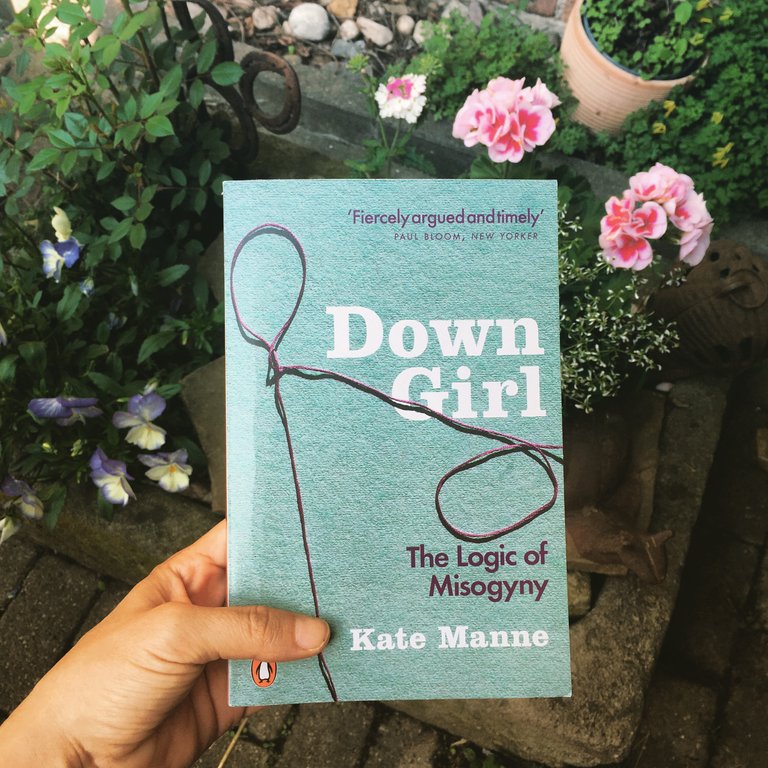
📚
What is misogyny? And (why) is it still occurring? This book explores the logic of misogyny, conceived in terms of the hostilities women face because they are living in a man’s world, or one that has been until recently. It shows how misogyny may persist in cultures in which its existence is routinely denied—including the United States, Australia, and the United Kingdom, which are often alleged to be post-patriarchal. Not so, Down Girl argues.
Misogyny has rather taken particular forms following the advent of legal equality, obligating women to be moral “givers,” and validating a sense of entitlement among her privileged male counterparts. Many of rape culture’s manifestations are canvassed—from the ubiquitous entreaty “Smile, sweetheart!” to Donald Trump’s boasts of grabbing women by the “pussy,” which came to light during his successful 2016 presidential campaign; from the Isla Vista killings in California to the police officer in Oklahoma who preyed on African American women with criminal records, sexually assaulting them in the knowledge they would have little legal recourse; from the conservative anti-abortion movement to online mobbings of women in public life, deterring the participation therein of all but the most privileged and well-protected.
𐂁
It is argued on this basis that misogyny often takes the form of taking from her what she is (falsely) held to owe him, and preventing her from competing for positions of masculine-coded power and authority. And he, in turn, may be held to owe her little.
📚
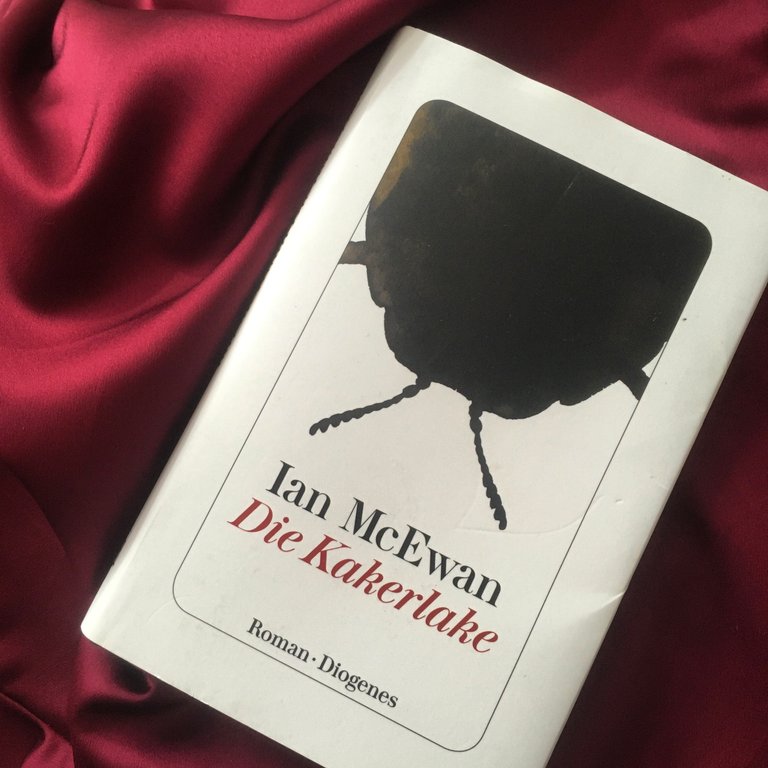
📚
“If you intend to have a long career in show business,” Elvis Costello wrote in “Unfaithful Music & Disappearing Ink,” his terrific memoir, “it is necessary to drive people away from time to time, so they can remember why they miss you.”
📚
It’s been difficult to miss Ian McEwan. “The Cockroach,” his satirical new Brexit novella, is his second book this year and his third in three years. “The Cockroach” is so toothless and wan that it may drive his readers away in long apocalyptic caravans. The young McEwan, the author of blacker-than-black little novels, the man who acquired the nickname “Ian Macabre,” would rather have gnawed off his own fingers than written it. At dark political and social moments, we need better, rougher magic than this.
📚
“The Cockroach” proposes a reverse-Kafka: A cockroach wakes in the body of a man. This man, it happens, is the prime minister of the United Kingdom. His cabinet: They’re mostly cockroaches in human form, too. So, probably, is the president of the United States, a Twitter-addled vulgarian. (Wasn’t this all in an episode of “Black Mirror”?) These insects are here to sow human discord, under the guise of patriotism and phrases like “blood and soil” and the notion of making things great again, to ensure their own survival in the resulting rubble.
I could only get hold of a copy in german but I'm sure the english original is the one you should be go and get if possible.
📚
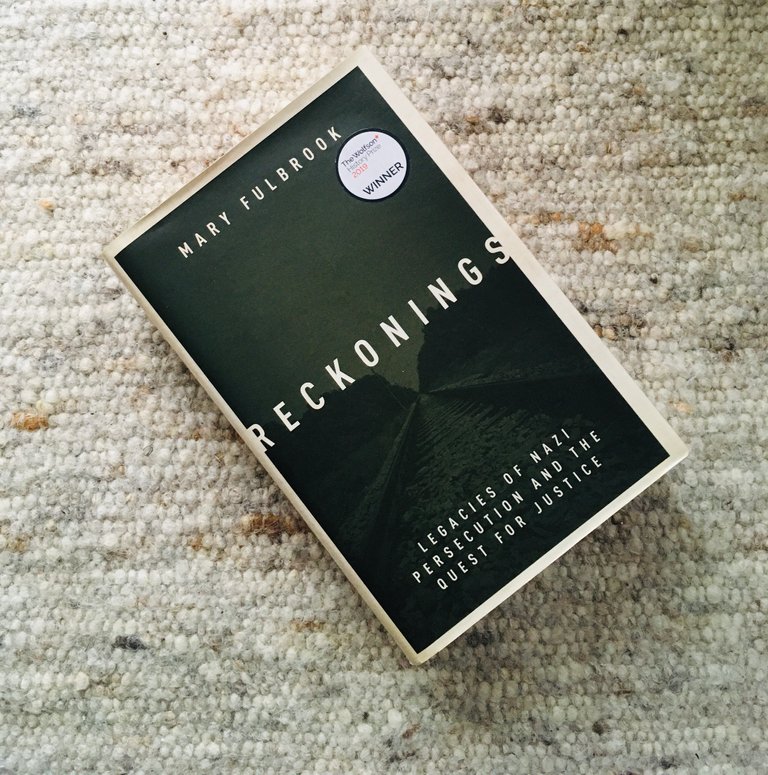
📚
A single word - "Auschwitz" - is often used to encapsulate the totality of persecution and suffering involved in what we call the Holocaust. Yet a focus on a single concentration camp - however horrific, however massively catastrophic its scale - leaves an incomplete story, a truncated history.
📚
It cannot fully communicate the myriad ways in which individuals became tangled up on the side of the perpetrators, and obscures the diversity of experiences among a wide range of victims as they struggled and died, or managed, against all odds, to survive.
📚
In the process, we also miss the continuing legacy of Nazi persecution across generations, and across continents. Mary Fulbrook's encompassing book expands our understanding, exploring the lives of individuals across a full spectrum of suffering and guilt, each one capturing one small part of the greater story. Reckonings seeks to explore the disjuncture between official myths about dealing with the past, on the one hand, and the extent to which the vast majority of Nazi perpetrators evaded justice, on the other.
The Holocaust is not mere history, and the memorial landscape barely hints at the maelstrom of reverberations of the Nazi era at a personal level. Reckonings illuminates the stories of those who remained outside the media spotlight, situating their experiences in changing wider contexts, as both persecutors and persecuted sought to account for the past, forge new lives, and make sense of unprecedented suffering.
📚
This book massively helped me in my research for my documentary #TheLesson.
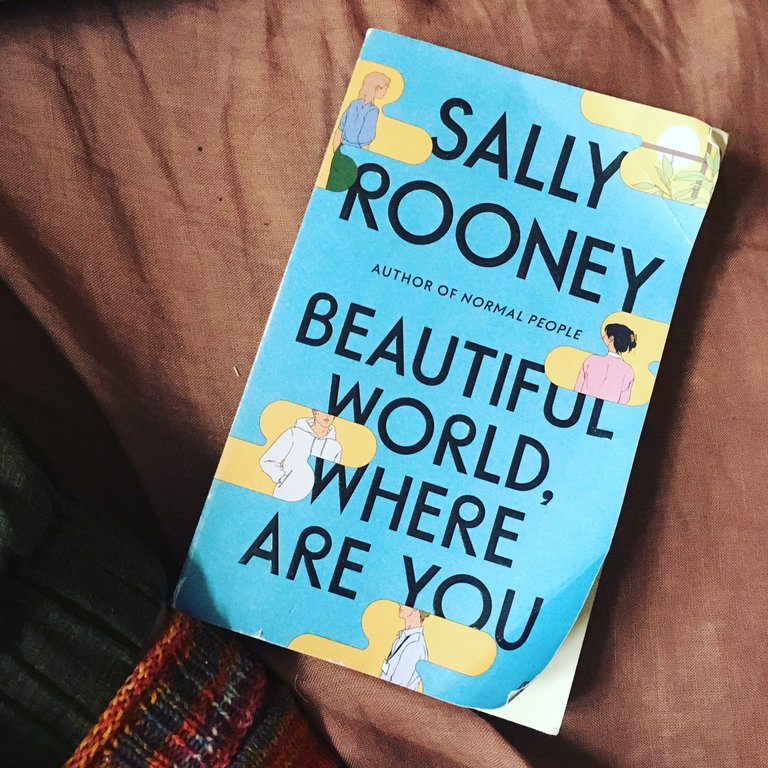
📚
Beautiful World, Where Are You is about two Irish friends, Alice and Eileen. Alice is a writer who attains success with her last book but is tired of fame; she’s also just out of psychiatric care. Eileen works for a literary magazine in Dublin and is recovering from heartbreak. The novel follows the two of them and their love interests over the span of a year as they weave in and out of each other’s lives. Alice meets Felix on a dating app and on a whim invites him to Rome with her (paying for his tickets). Eileen stalks her ex’s profiles on social media while finding comfort in the arms and bed of her childhood friend, the Catholic and very charming Simon.
📚
🇬🇧
Elena & Ale
